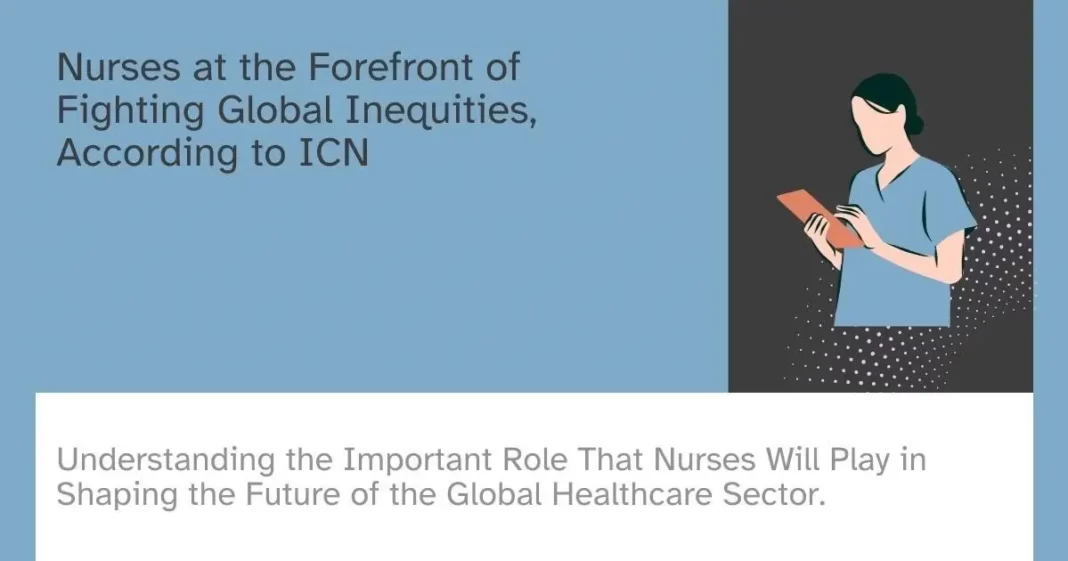Nurses hold a unique place within the healthcare system. As those who are most often working directly with patients, nurses must perfectly balance medical expertise and a fast-paced social environment, giving them a first-hand look into the inner workings of hospitals in a way few other fields allow.
So, at a time when organizations are looking at ways to reduce inequities and discrimination in the healthcare industry, it’s no surprise that nurses have been pinpointed as having an essential leading role in that push.
With that said, it’s important for us to understand the steps that were required for us to get here and what nurses being at the forefront of this push means for the healthcare sector as a whole.
How We Got Here
As discussed in this paper released to the National Academies Press (US) in 2021, we are at a point in which predictions and discussions of healthcare’s future from previous years could not have predicted the current state of hospital care. The global pandemic upheaved much of what we knew about the evolution of the healthcare sector and in turn, put a spotlight on many of the inefficiencies and inequities that had managed to bubble under the surface for decades.
This upheaval also put attention on the integral role that frontline workers such as nurses play in the maintenance of public health and safety, especially during times of emergency. According to COVID‐19: Implications for Nursing and Health Care in the United States, nurses made up the largest group within the US healthcare sector during the pandemic, meaning that they were one of the most impactful groups of professionals during that time, whilst also being some of the most at-risk.
At the same time, America, among other countries, now finds itself handling a shortage of nursing staff which has pushed more organizations and governing bodies to reevaluate the healthcare system from the ground up.
The Push For Change
This reevaluation of healthcare and the role of frontline workers is an attempt to not only improve inequities for patients but also for healthcare workers themselves. After all, hospital staff were put under a considerable amount of stress during the pandemic as overcrowded hospitals and high infection rates led hospitals to be quite dangerous and sometimes volatile spaces. So, as governments and healthcare institutions work together to improve and revitalize the nursing field and more people start to take on nursing courses and distance ABSN programs, we are sure to see some sizable changes in the sector across the coming years.
Why Nurses Are At the Forefront of Fighting Global Inequities
As we touched on earlier, nurses are the closest contacts that most patients are likely to have within a hospital. Nurses are tasked with checking on patients, sitting in with patients to perform tests, and working hand in hand with doctors and specialists to ensure consistency in care for those entering and leaving the hospital. For many, they are also a reassuring presence, offering care and concern at times that can be quite stressful for those involved. In many cases, especially during overcrowding, nurses may even be the only professional healthcare worker a patient sees during their stay, making their role even more vital to the American healthcare system’s quality of care.
Naturally, through working directly with patients, their loved ones and their doctors, nurses see all sides of the healthcare experience in America and that provides a considerable amount of nuanced insight into the issues that can arise from that system, especially under times of stress.
What Can Be Done?
To quote a Nursing Times breakdown of the ICS statement: “Strong organisational-level policies and interventions will help create cultures of non-discrimination where staff are empowered, supported and equipped with the resources to uphold this value.”
Any large-scale change within the healthcare sector cannot be on an individual level. Rather, success will mean larger systemic changes based on the needs and insights of nurses across the country. Whether tackling racism, sexism or other forms of inequity that can and have been shown across the healthcare industry on both sides, having nursing staff that are empowered with the skills and resources to handle situations as well as the knowledge that there are processes in place to support them directly in difficult circumstances is a good step in the right direction.
With all that said, while it is a great step in the right direction, it is by no means the only step that needs to occur. The healthcare industry has many issues such as inequality in care caused by high costs and these are issues that cannot be solved overnight. However, though there is still a lot of work to be done it is promising that organizations are being faced with the need to improve conditions and grow the nursing field from the bottom up.

